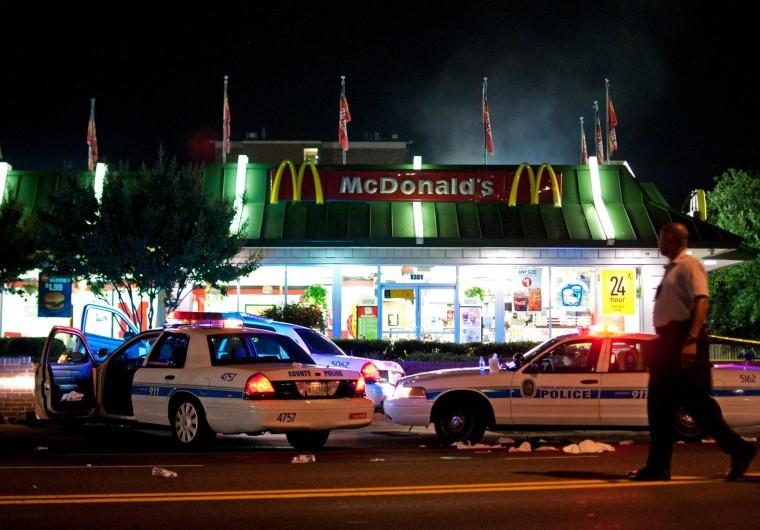
Crime time
Tackling underage drinking this fall won’t be as easy for University Police as it was last year, without additional state funding to payroll hundreds of hours of overtime.
The department used an additional $11,500 last year to pay officers for about 255 hours of overtime, mainly for entering bars to recheck patrons’ IDs and shutting down more house parties, according to University Police spokesman Capt. Marc Limansky. While police say underage drinking is a concern every fall semester, much of the state grant went unused — the department returned the remaining $18,500 in the spring because officers began carrying out fewer checks on bars and parties in the winter, Limansky said.
“We didn’t do as many enforcement operations in the second and third quarters [winter and spring] before deobligating the remaining funds,” he said, adding Gov. Martin O’Malley could then direct the funds where they were more needed. “We’ll manage; we’ve been able to manage for years.”
Director of the Maryland Statistical Analysis Center in the Governor’s Office of Crime Control and Prevention Jeffrey Zuback said leftover money from grants is usually redistributed to other institutions in need.
“Sometimes it happens that there is leftover money,” he said.
Several students, such as senior criminology and criminal justice major Becca Wells, said they felt the grant was unnecessary. Wells said university police should direct their focus to area crime.
“I was never concerned about the partying [being too much],” she said.
After a summer of relatively low crime rates — with the exception of sporadic incidents such as a man allegedly high on PCP engaging in a gun battle with police officers and stealing a cruiser and two assaults with a deadly weapon on Route 1 — police are confident they will still be well prepared and adequately staffed for the upcoming year. The city’s violent crime rate has decreased, Limansky said, from a peak of 7.06 incidents per 10,000 people in 2006 to 2.57 incidents per 10,000 people last year. Additionally, Student Conduct Director Andrea Goodwin said she didn’t see an increase in referrals to her office over the last year.
However, senior marketing major Chris O’Malley said he is surprised University Police did not use the full grant to curb underage drinking.
“I thought it was what [university President Wallace] Loh was working towards,” he said.
In addition, Limansky said students often misjudge the city as crime-ridden because crime alerts, which police send out to promote public safety, make students perceive high rates.
“Putting out these notifications feeds an illusion that crime is bad [in the area],” he said. “It’s probably less, or at worst, on par with other cities in the state.”
But that hasn’t stopped sophomore dietetics major Tal Lee from taking extra precautions when she wanders the city and the campus at night.
“I don’t feel as safe walking places by myself,” Lee said.
While many areas don’t send crime alerts to residents, universities have to abide by the Clery Act, a federal law mandating colleges disclose all crimes on the campus and in surrounding areas. Although students may feel unsafe, College Park is likely the most heavily patrolled area in the state, Limansky said.
“It affects the perception of the public in a negative way,” he said. “They aren’t getting the good news.”
akinnibi@umdbk.com



